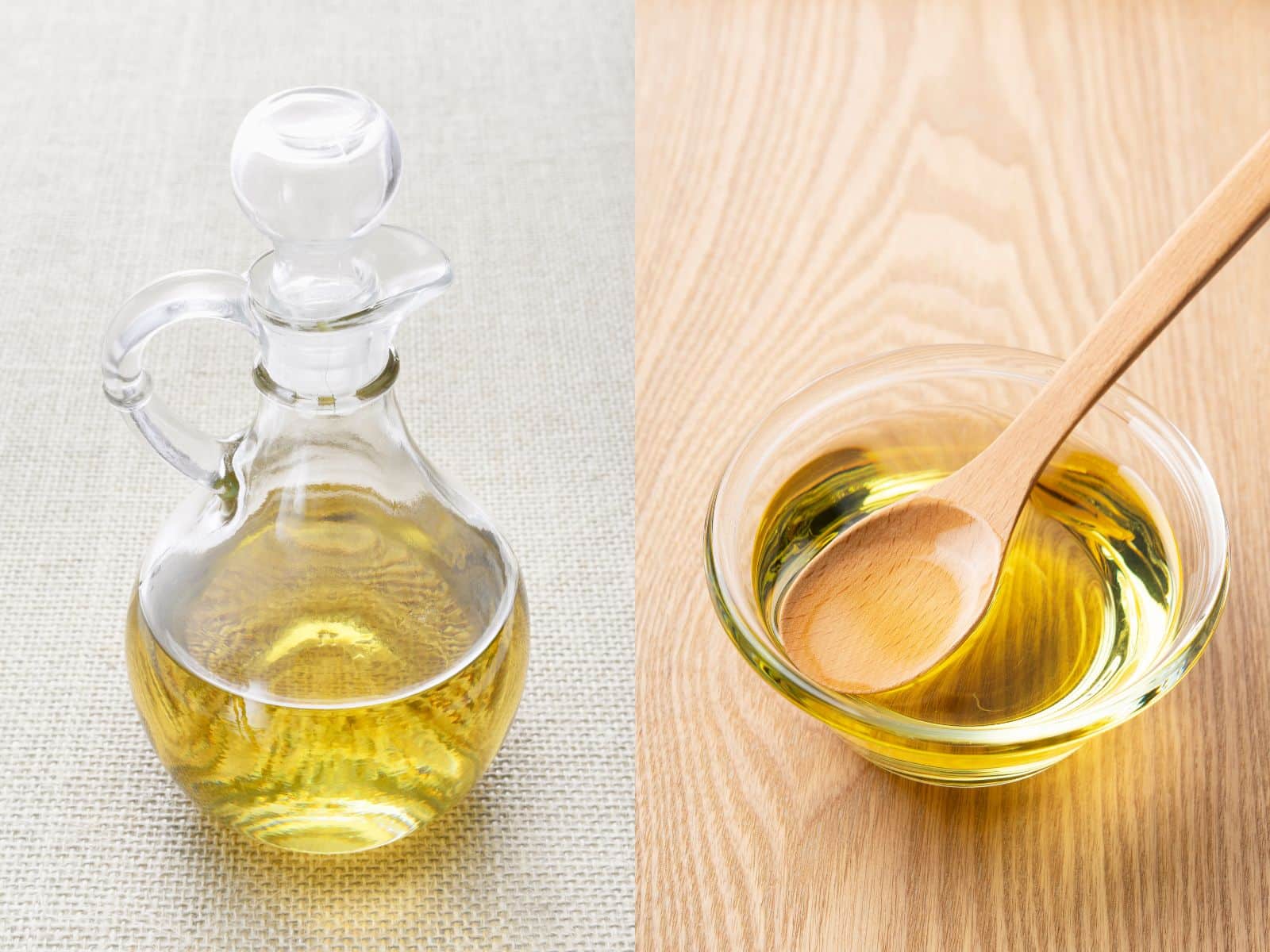Can you mix canola oil and vegetable oil? This is a question that has puzzled many home cooks and professional chefs alike. Whether you're in the middle of cooking and realize you're running low on one type of oil or simply curious about the compatibility of these two popular oils, it's important to understand the science, benefits, and potential drawbacks of combining them. In this article, we will explore everything you need to know about mixing canola oil and vegetable oil.
Both canola oil and vegetable oil are widely used in cooking due to their versatility, neutral flavors, and high smoke points. However, their nutritional profiles, cooking properties, and applications can differ significantly. Understanding these differences can help you make informed decisions when combining these oils in your recipes.
From health benefits to cooking techniques, we will delve into the nuances of both oils and provide practical tips for using them together. Whether you're a seasoned chef or a beginner in the kitchen, this guide will equip you with the knowledge you need to confidently mix canola oil and vegetable oil.
Read also:Affordable Housing In Queens A Comprehensive Guide To Finding Your Perfect Home
Table of Contents
- Introduction
- What is Canola Oil?
- What is Vegetable Oil?
- Can You Mix Canola Oil and Vegetable Oil?
- Benefits of Mixing Canola Oil and Vegetable Oil
- Potential Drawbacks of Mixing Oils
- Cooking Applications
- Health Implications
- Tips for Mixing Canola Oil and Vegetable Oil
- Conclusion
What is Canola Oil?
Canola oil is a vegetable oil derived from the seeds of the canola plant, which is a type of rapeseed. It is known for its light texture, neutral flavor, and high smoke point, making it ideal for a variety of cooking methods, including frying, sautéing, and baking.
Key Characteristics of Canola Oil
- Low in saturated fats
- Rich in omega-3 fatty acids
- Contains vitamin E and vitamin K
Canola oil is often praised for its health benefits, particularly its ability to support heart health when used in moderation. However, it's important to note that the quality of canola oil can vary depending on the processing method. Cold-pressed and organic varieties are generally considered healthier options.
What is Vegetable Oil?
Vegetable oil is a broad term that refers to any oil extracted from plant sources. It is typically a blend of different oils, such as soybean, corn, sunflower, or safflower oil. Vegetable oil is widely used in cooking due to its neutral flavor, affordability, and high smoke point.
Common Types of Vegetable Oil
- Soybean oil
- Corn oil
- Sunflower oil
- Safflower oil
Vegetable oil is versatile and can be used in a variety of dishes, from stir-fries to baked goods. However, its nutritional value can vary depending on the specific oils included in the blend. Some blends may contain higher levels of saturated fats, so it's important to check the label if you're concerned about health implications.
Can You Mix Canola Oil and Vegetable Oil?
The short answer is yes, you can mix canola oil and vegetable oil. Both oils have similar properties, such as high smoke points and neutral flavors, which make them compatible for use in the same dish. However, the ratio in which you mix them can affect the taste, texture, and nutritional value of your food.
Factors to Consider When Mixing Oils
- Smoke point compatibility
- Flavor profile
- Nutritional content
For example, if you're frying at high temperatures, you may want to use more vegetable oil due to its slightly higher smoke point. On the other hand, if you're baking, canola oil's lower saturated fat content may be more beneficial for achieving a lighter texture.
Read also:Henry Ford Pain Clinic Your Premier Destination For Comprehensive Pain Management
Benefits of Mixing Canola Oil and Vegetable Oil
Mixing canola oil and vegetable oil offers several advantages, both in terms of cooking performance and health benefits. Here are some key advantages:
Enhanced Flavor Balance
By combining the two oils, you can achieve a balanced flavor profile that works well in a variety of dishes. Canola oil's mild taste complements the slightly nuttier notes of vegetable oil, resulting in a versatile blend that enhances the overall flavor of your food.
Improved Nutritional Profile
Mixing oils allows you to take advantage of the best qualities of both. For instance, canola oil's omega-3 fatty acids can be paired with vegetable oil's higher vitamin E content to create a more nutritionally balanced option.
Versatility in Cooking
The combination of canola oil and vegetable oil can be used in a wide range of cooking methods, from sautéing and frying to baking and roasting. This versatility makes it a convenient choice for home cooks who want to streamline their pantry.
Potential Drawbacks of Mixing Oils
While mixing canola oil and vegetable oil has many benefits, there are a few potential drawbacks to consider:
Inconsistent Results
If the oils are not mixed in the right proportions, it can lead to inconsistent results in terms of flavor, texture, and cooking performance. For example, using too much vegetable oil in a baking recipe may result in a denser final product.
Potential Allergens
Some vegetable oil blends may contain allergens, such as soy or corn, which could pose a risk to individuals with food allergies. Always check the label to ensure the blend is safe for consumption.
Quality Variations
The quality of both canola oil and vegetable oil can vary depending on the brand and processing method. Using low-quality oils may affect the taste and nutritional value of your dishes.
Cooking Applications
Canola oil and vegetable oil can be used together in a variety of cooking applications. Here are some examples:
Frying
For deep frying, a 50/50 mix of canola oil and vegetable oil works well. The high smoke points of both oils ensure that they can withstand high temperatures without breaking down, while the neutral flavors allow the natural taste of the food to shine through.
Baking
In baking, canola oil is often preferred due to its lower saturated fat content, which results in lighter, fluffier baked goods. However, adding a small amount of vegetable oil can enhance the texture and add a subtle richness to the final product.
Roasting
When roasting vegetables or meats, a combination of canola oil and vegetable oil can help achieve a perfect balance of crispiness and flavor. The oils' high smoke points ensure that they don't burn during the roasting process.
Health Implications
Both canola oil and vegetable oil have been the subject of extensive research regarding their health effects. While both oils offer certain benefits, it's important to use them in moderation as part of a balanced diet.
Heart Health
Canola oil is particularly beneficial for heart health due to its high omega-3 fatty acid content. Studies have shown that consuming canola oil as part of a healthy diet can help reduce the risk of heart disease.
Antioxidant Content
Vegetable oil, especially blends that contain sunflower or safflower oil, is rich in vitamin E, a powerful antioxidant that helps protect cells from damage. Including vegetable oil in your diet can contribute to overall antioxidant intake.
Moderation is Key
While both oils offer health benefits, it's important to consume them in moderation. Excessive consumption of any type of oil can lead to weight gain and other health issues. Aim to balance your intake of fats with other essential nutrients.
Tips for Mixing Canola Oil and Vegetable Oil
If you decide to mix canola oil and vegetable oil, here are some tips to help you achieve the best results:
Start with Small Quantities
When experimenting with oil blends, start with small quantities to gauge how they affect the taste and texture of your dishes. Adjust the ratio as needed to achieve the desired outcome.
Choose High-Quality Oils
Opt for high-quality, cold-pressed, or organic oils whenever possible. These options are less processed and retain more of their natural nutrients and flavors.
Store Properly
To maintain the freshness and quality of your oil blends, store them in a cool, dark place away from direct sunlight. Always use clean utensils when handling oils to prevent contamination.
Conclusion
In conclusion, can you mix canola oil and vegetable oil? Absolutely! Mixing these two oils can offer numerous benefits, from improved flavor and texture to enhanced nutritional value. By understanding the properties of each oil and experimenting with different ratios, you can create versatile blends that work well in a variety of cooking applications.
We encourage you to try mixing canola oil and vegetable oil in your next cooking adventure. Share your experiences in the comments below, and don't forget to explore our other articles for more tips and tricks on healthy cooking. Happy cooking!
References:
- Harvard T.H. Chan School of Public Health - The Nutrition Source
- American Heart Association - Dietary Fats
- U.S. Department of Agriculture - FoodData Central



